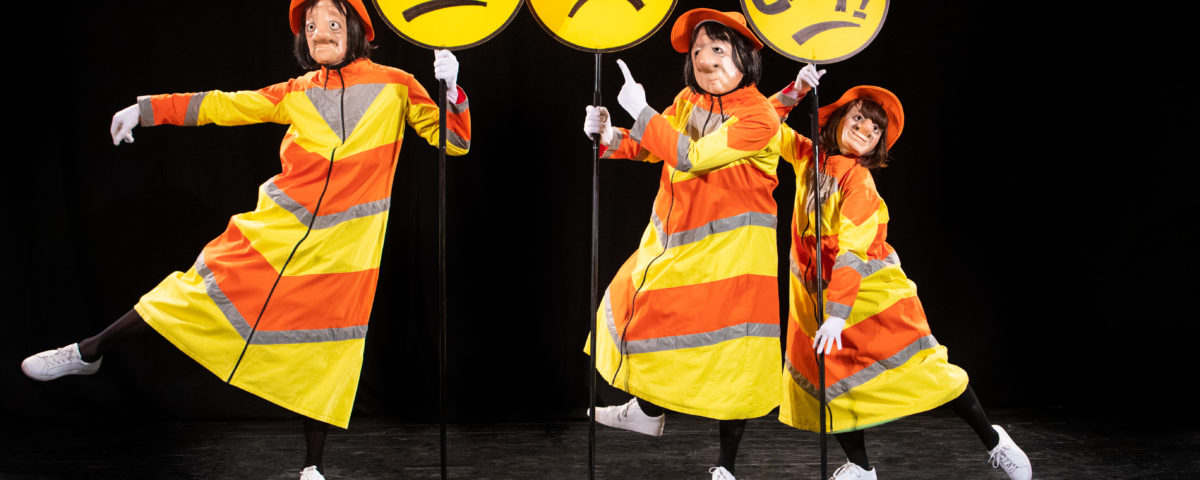FULL FACE NON VERBAL MASK THEATRE WORKSHOP

Duration:
Various ( 1 Hour - Full Day)Suitability:
Grades P - 6Available Terms:
Terms 1 - 4 FULL FACE NON-VERBAL MASK THEATRE WORKSHOP
Venue: Double Teaching Space, Drama Classroom, Studio, Theatre, Hall
OVERVIEW
Speak Without Words. Connect Through Movement. Tell Stories Through Mask.
Step into a world of movement, mystery, and silent storytelling! This inclusive, imaginative workshop invites students to explore the power of mask theatre — where there are no words, only expression, emotion, and action. Using full-face theatrical masks, students will learn how to create rich, engaging stories by using only their body, face, and gesture. This exciting introduction to physical theatre is ideal for developing confidence, creativity, collaboration, and emotional literacy through play.
WHO IT’S FOR
- Students from Prep to Year 6
- Suitable for mainstream, inclusive education, and ESL/EALD students
- Designed for class-sized groups or full-year rotations
- Activities adapted for developmental levels across Foundation–6
WORKSHOP FOCUS
- Storytelling Without Words – Build characters and scenes using only physical movement
- Body Language & Expression – Learn how emotions are communicated through posture, stillness, speed, and gesture
- Ensemble Work – Move, mirror, and connect as a group to build stories
- Creativity & Imagination – Transform space and masks into magical characters and surprising stories
- Focus & Presence – Discover the art of stillness and attention through silent stage play
- Resilience & Play – Celebrate mistakes and support each other through physical storytelling
MASK STYLES EXPLORED (Simplified for P–6)
- Neutral/Full Face Masks – Explore calm, still expression and big body movement
- Character Masks – Build silly, sweet, spooky, or strong characters through physicality
- Exaggerated & Grotesque Masks – Use shape and size to make bold choices
- Animal & Object Masks – Let imagination transform movement into meaning
AUSTRALIAN CURRICULUM LINKS (Years F–6)
The Arts – Drama
Foundation – Year 2
- ACADRM027: Explore role and dramatic play using movement and facial expression
- ACADRM028: Use voice and body to explore feelings and situations (adapted to mask performance)
- ACADRR029: Respond to drama and reflect on how it made them feel
Years 3–4
- ACADRM032: Explore dramatic action through movement, shape, and gesture
- ACADRM033: Create stories and scenes using mask and ensemble movement
- ACADRR034: Reflect on how meaning is made through non-verbal expression
Years 5–6
- ACADRM036: Rehearse and refine mask-based sequences to communicate clear ideas
- ACADRM037: Explore how drama can tell powerful stories without speech
- ACADRR038: Analyse how physical choices create emotion and narrative
English
Foundation – Year 6
- Use body language to understand narrative structure and character emotion (ACELY1650–1700)
- Explore storytelling in visual, performative, and multimodal formats
- Build oral language and storytelling skills by interpreting non-verbal scenes
Health and Physical Education (HPE)
Foundation – Year 2
- ACPPS003: Identify emotions and their physical expression
- ACPPS005: Use respectful communication and inclusion in play
Years 3–4
- ACPPS037: Develop personal and social skills to work cooperatively
- ACPPS038: Understand how emotions are expressed and interpreted in others
Years 5–6
- ACPPS051: Examine how movement and expression affect relationships and social wellbeing
- ACPPS056: Build confidence and resilience by trying new experiences and celebrating effort
GENERAL CAPABILITIES
Personal and Social Capability
- Build confidence and emotional literacy through expressive movement
- Promote teamwork and trust through shared physical storytelling
- Develop self-regulation and presence through focused, silent performance
Critical and Creative Thinking
- Create imaginative responses to dramatic prompts without relying on language
- Reflect on how gestures, space, and tempo change meaning
Ethical Understanding
- Explore empathy, kindness, and non-verbal respect in collaboration
- Learn to support each other’s creativity and interpretation
Intercultural Understanding
- Discover mask traditions from around the world (e.g., Greek theatre, Commedia dell’Arte, Balinese dance, Japanese Noh)
- Respect cultural differences in expression and physical storytellin
WHAT STUDENTS GAIN
- A stronger understanding of emotions through body awareness
- The ability to tell rich stories without relying on language
- Greater confidence in performance and creative risk-taking
- Connection with others through group movement and ensemble work
- Tools for focus, stillness, reflection, and self-awareness
TEACHER TAKEAWAYS
- Teachers receive a mask theatre activity guide with 5 classroom-friendly games
- Links to literacy, drama, and wellbeing frameworks
- Perfect as a springboard for narrative writing
Devised by: Clint Bolster
Directed by: Clint Bolster